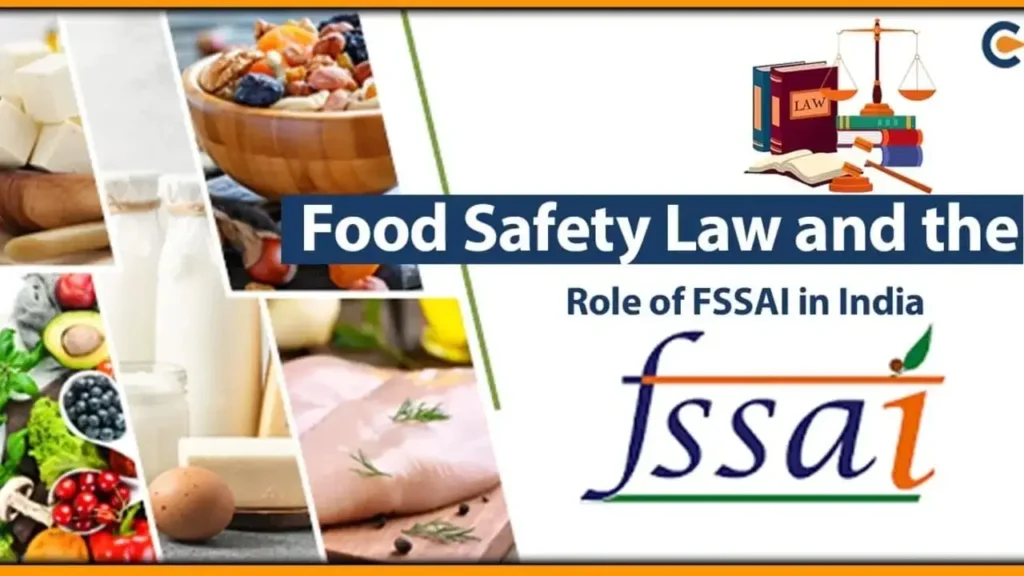The role of FSSAI, established on 5 September 2008, operates under the Ministry of Health & Family Welfare. Headquartered in New Delhi, FSSAI was created under the Food Safety and Standards Act of 2006. The authority’s primary role is to protect and promote public health by regulating and supervising food safety standards across India.
FSSAI’s responsibilities include formulating guidelines, conducting inspections, and ensuring compliance with food safety norms. Through these measures, FSSAI aims to safeguard consumers and maintain the quality and safety of food products in the market. FSSAI’s comprehensive efforts in setting and enforcing food safety standards are crucial for public health and consumer trust.

Read also: U.S. Warns China: Stronger Ties with Europe Impossible While Backing Russia in Ukraine War.
The role of FSSAI extends beyond regulation and supervision of food safety standards to various initiatives aimed at promoting public health. One such initiative is the State Food Safety Index, which measures the performance of states on five parameters of food safety, encouraging healthy competition and improvements. Additionally, the Eat Right Awards are presented by FSSAI to recognize the contributions of food companies and individuals who empower citizens to choose safe and healthy food options.
Another significant outreach activity organized by FSSAI is the Eat Right Mela, which aims to nudge citizens toward healthier eating habits. This event provides information and engages the public in activities highlighting the importance of eating right. Through these initiatives, FSSAI plays a crucial role in fostering a culture of food safety and healthy eating across India.

Artificial ripening: The Role Of FSSAI
The FSSAI is critical in regulating substances like calcium carbide (CaC2), a compound known as ‘masala’ used for artificial fruit ripening. CaC2 is manufactured through a high-temperature process involving lime and carbon. Still, its use as a fruit ripening agent is prohibited under the Food Safety and Standards (Prohibition and Restriction on Sales) Regulation, 2011. This prohibition aligns with FSSAI’s mandate to ensure food safety and protect consumer health.
Artificial ripening with CaC2 involves releasing acetylene gas, a hazardous substance, which accelerates the ripening process. However, this method compromises fruit quality and safety. FSSAI’s stance against CaC2 underscores its commitment to promoting safe and natural food handling and production practices. By enforcing regulations prohibiting harmful substances like CaC2 in food processes, the FSSAI contributes significantly to safeguarding public health and maintaining food quality standards across India.
- Health Risks: Calcium carbide is a highly reactive compound that emits acetylene gas when exposed to moisture. This gas can lead to health issues such as respiratory problems and gastrointestinal disorders. In severe cases, it may contribute to the development of cancer and other long-term health concerns.
- Regulatory Measures: The FSSAI strictly prohibits the sale and utilization of calcium carbide for artificial fruit ripening under the Food Safety and Standards (Prohibition and Restriction on Sales) Regulation, 2011. The authority actively enforces these regulations through inspections, sampling, and ongoing monitoring of food products to ensure adherence.
- Consumer Protection: FSSAI’s regulations concerning calcium carbide aim to safeguard consumers from the hazards associated with artificially ripened fruits. By advocating natural ripening methods or safer alternatives, FSSAI contributes to upholding the safety and trustworthiness of the food supply chain.
- Education and Awareness: The role of FSSAI is to conduct awareness campaigns targeted at food handlers, producers, and consumers to highlight the risks linked to calcium carbide usage for fruit ripening. These educational initiatives emphasize the significance of following food safety protocols and adopting healthy and safe food practices.
- Collaboration and Research: FSSAI collaborates with scientific institutions, research bodies, and industry professionals to continuously evaluate and update food safety regulations, including those about artificial fruit ripening agents. This collaborative approach ensures that FSSAI’s guidelines remain abreast of the latest scientific insights and industry best practices in food safety management.
Overall, FSSAI’s efforts to regulate calcium carbide and artificial fruit ripening are integral to its broader mission of safeguarding public health and maintaining the availability of safe and high-quality food products in India.
To get more out of our exclusive news, Join us on our WhatsApp Channel, Facebook, and Instagram.















